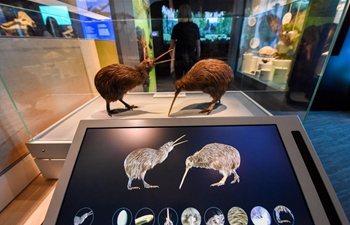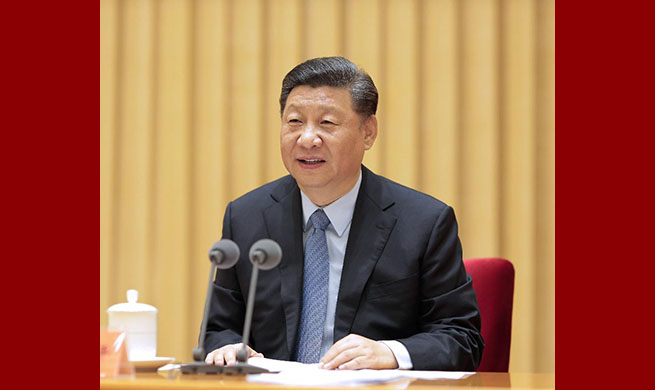BEIJING, May 11 (Xinhua) -- The following are the highlights of China's science news from the past week:
DEEP SEA RESEARCH
Chinese space experts have strengthened international exchanges in the latest achievements in exploring the moon, Mars, Jupiter, asteroids and the deeper cosmos.
While developing the Chang'e-5 and Chang'e-6 lunar probes and China's first Mars probe, China Academy of Space Technology (CAST) is also pushing forward space programs such as the planned unmanned lunar research station, and probing asteroids, Mars, the Jovian system and the edge of the solar system, as well as interplanetary exploration, said experts from CAST.
RUNNING MAY HELP DINOSAURS FLAP WINGS
A Chinese study found that running may have caused early winged dinosaurs to flap their wings before they evolved the ability to fly, providing new insights into the origin of avian flight.
Since a nearly-complete Archaeopteryx fossil specimen was discovered in 1861, there has been a debate on "gliding or flapping" when researchers discuss how these primitive birds once flew.
VIRTUAL NUCLEAR PLANT
Chinese scientists have developed a virtual nuclear power plant within a digital society, a software program to help evaluate the safety and efficiency of nuclear energy systems.
The research of the system, named Virtual4DS, was published as a cover paper in the International Journal of Energy Research in April.
OCEANS VITAL TO CLIMATE CHANGE IN DRYLANDS
Ocean activities will have a greater impact on climate change in drylands, which might lead to intensifying drought and deterioration of ecosystem, according to Chinese researchers.
Researchers from Lanzhou University in northwestern Gansu Province analyzed how ocean activities influence climate change and the ecological environment in drylands of the world over the past 100 years.
Significant warming and human activities increase the danger of land degradation and ecological deterioration, making drylands more sensitive to global climate change.
QINGHAI-TIBET PLATEAU WEATHER SYSTEM
China has launched a project to conduct research on the effect of the Qinghai-Tibet Plateau weather system on other regions.
The project, led by the Chinese Academy of Meteorological Sciences, will study the mechanism of the plateau's weather and its effect on disastrous weathers of its downstream regions, in order to provide support on improving the forecasting ability.

















